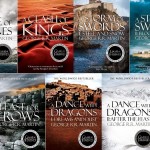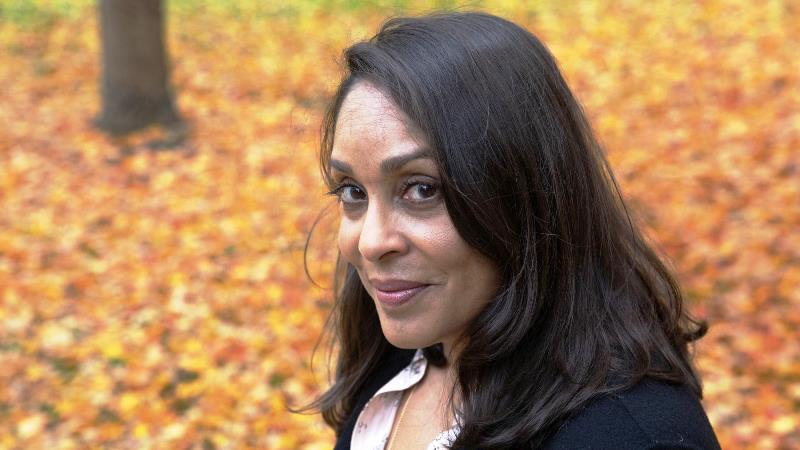Ah, this is a much debated notion. Is George Martin a senile old man holding 19th century world views? Or is he a clever writer with the ability to create dozens of memorable characters, build entire cities with mind-numbing detail, and construct a complex web of political relations all the while making it seem real despite living dragons and ice zombies? I would personally lean towards the latter, because Occam’s Razor. While we do have the casual nudity, an abundance of female sex slaves, sex workers, and a patriarchal society established throughout Westeros and Essos, that doesn’t necessarily imply sexism.
It’s a cruel world we live in, especially crueler if you go a few centuries back (or even just two). Despite all the magic and the fantasy in Westeros and Essos, it’s this medieval world that GRRM have attempted to recreate. Let’s hit it off with Seasons 1 and 2 :
Suggested read: Here’s how you shut up those who try to dismiss feminism with hollow arguments
Season 1
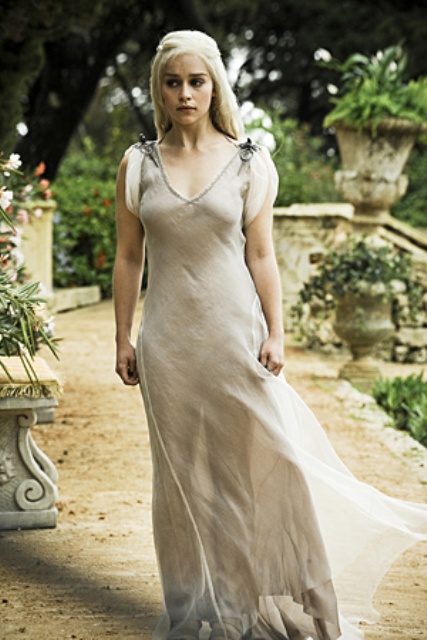
Image source: HBO
There wasn’t any blatant ‘sexism’ on the part of GRRM or the show writers in Season 1, except maybe the entire Daenerys arc. So let’s skip the Winterfell scenes and cross the Narrow Sea to see the first glimpses of Pentos. Daenerys (Dany) is shown in a lavish mansion which is later revealed to belong to Illyrio Mopatis, a wealthy magistrate from Pentos. It becomes clear to the viewer that Dany is being sold like cattle; and that it’s a political marriage serving to bolster Viserys’ chances of sailing back to Westeros. This is the season where Dany has the most empowering character development, like a typical protagonist who has obstacles thrown at her yet overcomes all of it; slowly changing in character and personality. Drogo is shown to be a violent and aggressive husband who despite coming from an entirely different culture is still someone who could be hard to love (let’s face it, people like Drogo because of Jason Momoa), and their entire “love story” in a way parallels that of Beauty and the Beast.
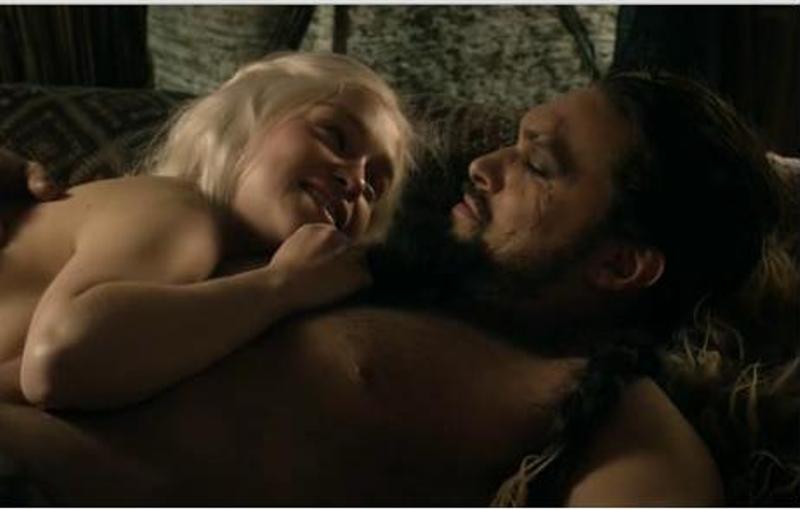
Image source: HBO
This is a typical trope which even George Martin seems to not have been able to get rid of, with Dany trying hard to be the good Dothraki wife to ‘please’ Drogo (note how she wasn’t a Khaleesi in character when Drogo was alive, she was only an appendage to him, his emotional and sexual retreat). Dany even had one of her handmaidens (Doreah) teach her how to pleasure men, and all of this just to please a man who abused her and treated her like property, and nearly nothing like a ‘Khaleesi’.
However, like anything else, there’s another perspective to this. Dany’s marriage to Drogo and her forced inclusion into Dothraki culture was a crisis to her, as a character. And what do characters do in crises? They make the best of what they have. Dany knew Drogo was a dead end for her, and besides she never really had any dreams of conquest and bringing Targaryen rule back in Westeros (at least not until Drogo died and her dragons hatched); so she accepted her fate and ‘survived’. This is where opinions come in, and neither of the two are absolutely wrong. However, what still is problematic is that for someone who later tries to achieve big feats like ending slavery in Essos and raising armies to go on an all-out war against the Masters, it seems like the power in knowing sexual autonomy isn’t power in and of itself for Dany. She leverages her sexuality as a tool to gain it- which is deeply problematic, because it represses her sexuality and in turn, automatically makes her own sexual liberation defunct in that she still has to ‘pleasure’ the khal in order to assert it.
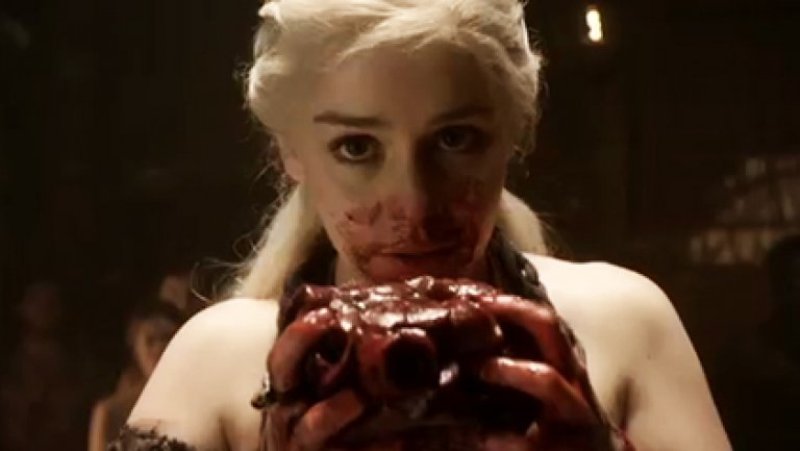
Image source: HBO
Season 2
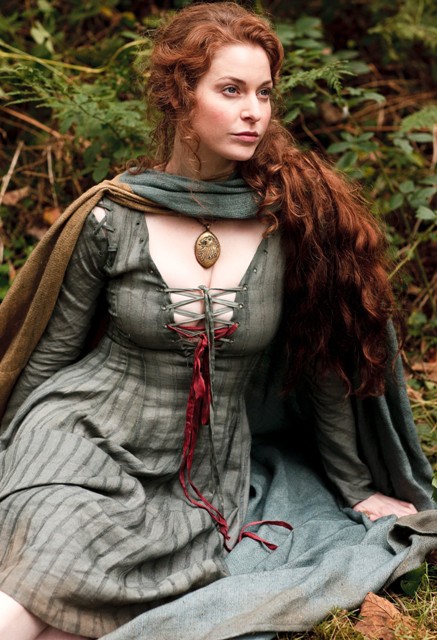
Image source: HBO
Let’s talk about how blatantly Ros was used as a pawn. It’s alright if you don’t remember her, she was a non-cannon addition from the show writers anyway, and a delightful one at that. Ros, a prostitute rising from the lowly brothels of Winterfell to serving Littlefinger in King’s Landing, met a predictably depressing fate towards the end, which everyone knew was coming. The problem many had with Ros was her ultimately being used by Littlefinger and Varys in their little game of spite. When the time came, Varys didn’t offer her the protection she should’ve been promised, and Ros ended up being Joffrey’s personal dart board.
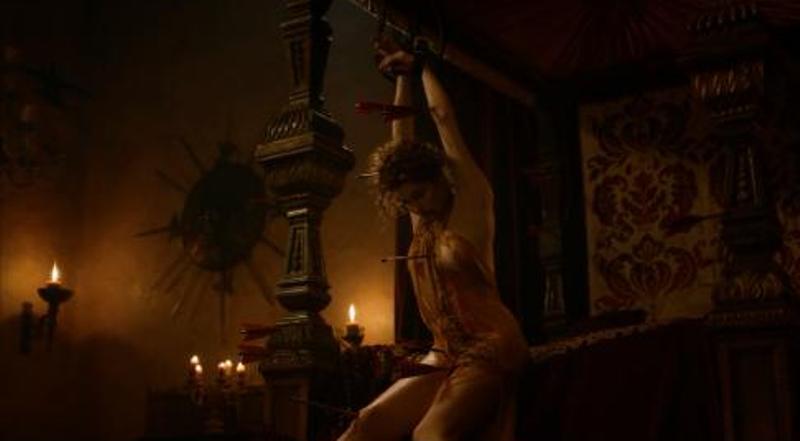
Image source: HBO
This wasn’t a sexist character arc per se, it’s just how few ‘likeable’ and ‘prominent’ female characters (cool wildling woman who got killed off by Wights in her only episode, I’m looking at you) we have on the show and yet D&D puts them in the worst of positions just to make way for characters that show watchers “really want”.
Suggested read: 25 male celebrities who rock as feminists
Let’s talk about Sansa for a bit, because she went through hell in this season. From watching her father’s head being lopped off in one swing to being physically and mentally abused day in and day out, we couldn’t help but imagine Joffrey’s head on a spike. However, this is one of the arcs which in a way redeems every little sexist aspect of the show.
Sansa’s character in general is one which is struggling with keeping with patriarchal Westerosi norms. Sansa plays the role of the ‘ideal Westerosi bride,’ pretty and ever so courteous. Sandor gives her a fitting nickname, “little bird”. He mocks her for her overly polished courtly behavior, and at the same time, pities her for being so fragile in the cruel life of the court. George Martin has been known to leave metaphors throughout his writing; the death of Sansa’s direwolf ‘Lady’ signifies the beginning of her arc. Her naivety is forced to die out, including her genuine feelings for Joffrey. No, she hasn’t yet developed fully, and she has a long way to go, but this was a very delightful start. Harshness brings out the best or the worst in someone. For Sansa, her naïve and warped sense of reality was shattered, and more importantly she learned to survive.
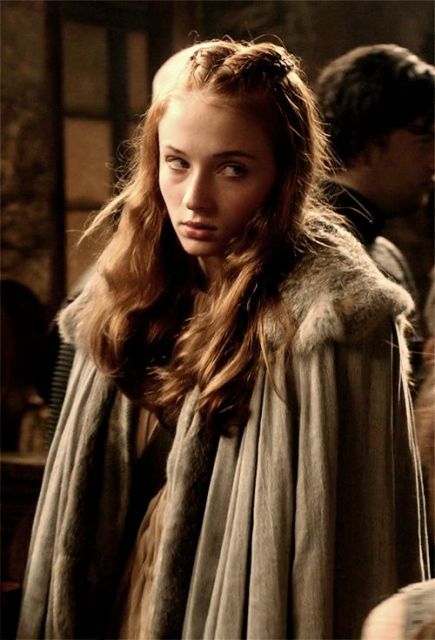
Image source: HBO
There’s a huge amount of nuance involved when we dub Game of Thrones as a whole as either feminist or anti-feminist, but like anything, it has its own flaws. It’s up to the reader/watcher to decide whether they feel something is either being used as an important plot device or is just casual blatant sexism, because Game of Thrones and A Song Of Ice And Fire have too much depth to make sweeping generalizations.
Featured image source: bgr



